After my brother Dave was diagnosed with brain cancer at age twenty-three in 2011, we felt constantly bombarded by new information, new challenges. We began to meet this sense of overwhelm with a running joke: “Hey, give us a break. We don’t know what we’re doing. After all, this is our first brain tumor!”
No one plans and prepares for an illness like cancer the way they do for college. And yet, I have long noticed, in myself and in others who have found themselves caring for a fellow adult who is disabled, ill or dying, a nagging sense of something akin to shame: I should be better at this, somehow.
Better at planning ahead for accidents. Better at taking notes. Better at staying patient with someone who is irritable or forgetful. Better at making all of their suffering go away.
I believe we feel this way not because we should be better, but because we are not permitted to see how bad this can get for other people. Our culture hides the evidence of our own vulnerability and mortality from us until it is upon us. There are no good memes for this.
Recently our In Tending caregiver circle members explored this complex knot of emotions, as it relates to caring for another adult. We agreed to keep meeting, to remind each other that we are not alone, and that we are all basically good people, making the best of a very difficult situation. If you’d like to join us for our next circle for caregivers of adults, please fill out this poll and make sure you’re signed up here for our Zoom invites.
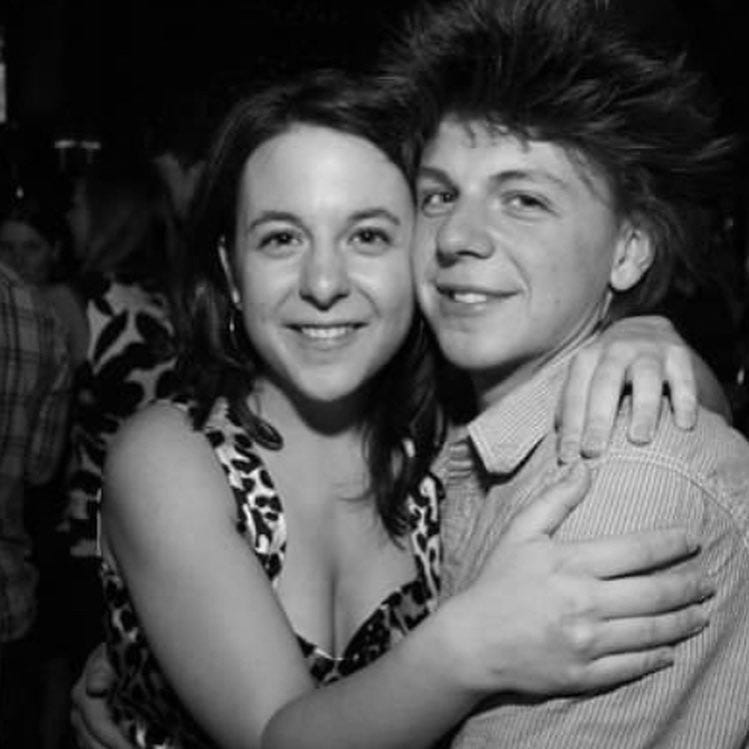
In the meantime, this week, I’m sharing my brother’s full cancer story, from diagnosis to treatment to denouement, in the post that follows.1 I am doing so for two reasons.
I want to remind others in this situation that “you are not alone” is not just a comforting cliché. Illness and death, as the Buddha once taught, are universal aspects of the human experience; they come for us all. Caring for someone who is sick or dying, though it can feel deeply isolating, also connects you to the rest of the world as few other human experiences do. To me, the healing power of this kind of connection is what the In Tending community is all about.
I want to remind caregivers that we, too, have important stories to tell. While patients receive a treatment plan, we often have to make these stories up as we go along. Sadly, we do not have the power to write a “happy ending” into these stories. And yet, as David Foster Wallace reminds us in This is Water, we still have the agency to decide how we tell them.
Telling us how you see it, as a caregiver, is a gift for the rest of us, born of your own agency and courage. May my brother’s story live on as a gift like that for you. And in the comments below, in the upcoming circles to come, I hope you too will give it a try.
Our first brain tumor
At age twenty-three, while sipping coffee with me in a South Korean coffeeshop, my brother turned blue and blacked out, the result of a sudden seizure. An avid traveler, Dave was stopping by to see me on his way from China to Australia. Riding with him in an ambulance through the streets of Seoul, where I was living and teaching at the time, I knew instinctively that this episode would change the course of both of our lives.
The doctors in Asia were the first to suspect a tumor, but could not explain the implications in English. So, one week later, we flew my brother home to Buffalo for a biopsy.
In a biopsy, surgeons take and test a sample of a tissue, and, if it’s cancerous, remove the tissue. After going into surgery at Millard Fillmore Gates Hospital, Dave came out the other end minus one anaplastic astrocytoma. A Stage Three brain tumor, the same kind as Ted Kennedy’s.
Thanks to the seizure, they’d caught it early enough to operate. But many questions remained regarding how to keep it from coming back. Radiation? Chemotherapy? Some combination of the two?
Words like anaplastic astrocytoma roll off my tongue now, but they didn’t then. Trained as a reporter and raised as a big sister, I wanted to read everything I could about Dave’s prognosis, to take control of the situation. Instead, the more I researched, the more I simply scared myself silly.
Instead, I learned to ignore the average prognosis and listen to the human experts in front of us. The ones holding Dave’s one wild, precious life in their hands.
And boy, could Dave’s new oncologist talk. Not just about cancer, either. As Dave transitioned from the surgery part of his process into the treatment phase, we met with Dr. M. monthly. Tall and elegantly attired, with an auctioneer’s speedy spiel and a politician’s handshake, the middle-aged Dr. M. struck a memorable figure in Roswell’s neuro-oncology department. Our appointments always began with a quick update on my brother’s most recent MRIs, blood results, and chemotherapy treatment plan. (My brother’s first treatment was Temodar, for the record.) But as my brother returned to school, returned to skateboarding, returned to dating, the two of them began to riff at greater length about these things. Soon, they had a regular comedy routine going.
“Hey Dave, nice hair, man. Now that it’s back, it looks like a mess. What, didja just wake up? The girls must love you, man.”
“Not as much as they probably love those shoes, doc. How much those things cost?”
It was clear that Dr. M. had places to be and things to do, but that these riffs were part of the treatment. From the beginning, Dr. M. and his colleagues very purposefully steered every conversation back to what made life worth living for Dave — in this case, girls and skateboarding.
Looking back on these exchanges now, as someone who has worked in the helping professions for a decade, this approach also likely preserves quality of life for the oncologists themselves. Teachers don’t go to work to help someone learn how to write the letter F; they do it to help a child they love write a letter to a grandparent. Oncologists, I imagine, are the same. It’s not very satisfying to declare your own raison d’etre as defeating tumors, because often, you don’t. But giving someone with six months to live another two years on top of that, to skate and travel and fall in love? Now that’s a reason to get out of bed in the morning.
Still, getting out of bed in the morning was a hard thing to do for all of us, at first. But we got better with practice. After all, this was only our first brain tumor.
The second opinion
Sometime in 2013, Dr. M. was preparing for our usual monthly visit with Dave. Dave, by then, had defied all odds by surviving treatment after treatment for two and a half years. He had skated, traveled, and fallen in love. He was even preparing to graduate from Buffalo State in a matter of months. I had just been accepted to grad school myself. We talked eagerly, often, on Skype about our plans for the future.
Yet while previous scans had showed a brain that was blissfully bereft of new growth, this time, Dr. M. discovered… something new.
At the time, he did not know—or chose not to divulge—the nature of the thing. Radiation damage, a new tumor, a Crackerjack prize? He wouldn’t say. Instead, he told my brother Dave that it was time for us to get a second opinion.
"Pick a city, and I'll send you there," Dr. M. told my brother.
My brother chose New York City, because by then, I lived there. Though I had quit my job in Seoul to be in Buffalo with him during his first stages of treatment, I had also gotten romantically entangled with a dear old college buddy who lived in Brooklyn — the man to whom I am still married today. As my career and bank account took a huge hit when I left my teaching job in Korea, my then-boyfriend had offered to shack up with me in then-affordable South Slope to help me save money. This way, I wouldn’t have to get a full-time job, and could keep focusing on being there for Dave, albeit a bit further away.
The doctors gave Dave an appointment at Sloan-Kettering, a hospital home to the oldest cancer treatment center in the country. Inside of that center, we learned, there sits a second-opinion-giving machine of an oncology office, housed in their outpatient facility on East 53rd Street.
The first question our second opinion doctor asked when he entered the room, towering over us in his white coat and pinstriped pants, ever so polite in his British accent, was "Did you travel far to be here?"
"Just from Buffalo," my brother said.
"How long does that take?"
"About nine hours on the train."
Dr. P. did not confirm nor deny that a nine-hour train ride qualified as "far," from the perspective of the Sloan-Kettering second-opinion machine. He had already turned his back to us, and began fiddling with the computer, which contained my brother's life story, as seen through the lens of his cancer treatment.
The computer was one of six objects total in the room. The others were: the desk on which it sat, the cushioned stool on which Dr. P. sat, the hard chair on which I sat, and the examination chair on which Dave reclined. There were no posters on the walls, urging us to quit smoking or examine an esoteric part of the human anatomy in detail; no swabs or other testing elements to suggest the dynamic messiness of medicine. This room did not seem to be a place for gathering or providing new information to the freshly-diagnosed. It was a place for examining the truth or falseness of what was already thought to be known.
Dr. P. quietly traveled along the timeline of Dave’s treatments on the screen, reading while we waited in silence, sometimes swiveling around to ask for directions on his journey.
"When did you receive your first gamma knife treatment?" he asked Dave at one point.
In May 2011, I knew immediately. Right before my birthday. Even though he was still recovering from surgery, Dave had still made me a birthday dinner, and served it al fresco on his porch in Elmwood Village.
"When did you stop taking Temodar?" came the next question. This one was more difficult. Dave simply knew he had been itching for months to cease swallowing poison. Temodar had caused sores to erupt in his mouth and his urine to burn with exiting chemicals, poison that caused him to vomit and go numb, his bones to rubberize and his skin to feel always numb. Finally, sometime recently, his doctors had said yes, no more Temodar. (We would learn later in this appointment that it had not been working anyway, that his sense of taste, of warmth, had been traded for ... nothing.)
Whenever Dave said, "I don't know," Dr. P. swiveled back towards the computer and its objective account of things, away from our faulty human memories, etched in emotions and not in black-and-white images.
But certain emotive details impressed even Dr. P. He noted that Dave had, in the span of time between his first seizure and this second opinion, visited South Korea, Singapore, Thailand, Cambodia, Guatemala, and several domestic destinations besides.
"It looks like you've really been making the most of your time," he said, admiration in his voice. "Some people get their cancer diagnosis, and they don't do anything different."
It had never occurred to me that someone might interpret my brother’s traveling, something he would have done with or without cancer, as some kind of bucket-listing, Make-a-Wish world junket. But of course, that's how it must have looked to an oncologist who didn’t know him like Dr. M. did.
As I turned this moment over in my mind, the hair began to stand up on the back of my neck, as if an eerie horror movie soundtrack had begin to play inside of the room. Dave's doctors at home had centered his wishes for how he wanted his life to look, to be sure. But they had never actually uttered the phrase, "make the most of his time.” What did these doctors know about his time that Dave didn’t?
We found out when Dr. D., the head of the outpatient cancer clinic, joined us in our cell. Petite and pixie-cutted, D. eschewed the chair by the computer for a low stool, arranging herself so that her compassionate eyes were level with mine.
She asked Dave to follow her fingers with his eyes, the way you'd do with anyone who'd been knocked upside the head. He could move his eyes like a champ. I cheered for him and his eyeballs silently from my chair.
But then came the other tests, walking tests, the kind the cops might give to you on the side of the highway if they'd seen your car wandering towards oncoming traffic. Heel to toe, heel to toe. The kind I could have passed easily, even after a New York happy hour.
Dave had told me he'd been losing his balance lately. He had a bruiser of a scar on his right cheekbone from a skateboarding spill he'd taken a few days earlier, while on this visit to New York City. But still, I was surprised to see how much Dave struggled with this test, staggering from side to side.
It was clear that Dave's tumor was coming back, and it was affecting his brain. There was no denying it now.
After two and a half years of treatment, the Sloan-Kettering team told us, Dave was now playing host to a hardened guerilla force of aggressive survivor cells, cells who could not be killed by chemotherapy and were becoming resistant to radiation.
More bad news followed. The kind of low-grade radiation his doctors had been using to keep the guerillas in hiding, radiation that could be delivered to large areas of his brain at a time in order to tamp down the tentacle-like growth of his tumor throughout his brain, could no longer be used, because they would "fry" his brain beyond redemption.
They showed us the tentacles on another computer screen, moving steadily forward, with nothing left to stop them.
"Nothing is going to kill this," Dr. D. told us finally, sadly.
After a long pause, I asked, "So what does the future look like now for Dave?" I asked. Dave had been working part-time. He’d been conducting job interviews over the phone for positions in other states. He had been hoping to buy a new car, and perhaps get a new place of his own.
"Well, things are going to start to slow down for him," Dr. D. responded carefully, meeting my gaze. "It's going to become tougher for him to keep his balance. He's going to lose the ability to control certain parts of his body. He may lose the ability to walk. You may see personality changes. He probably shouldn't live alone."
"So what about jobs, in the near-term?" I asked, still looking for loopholes, focusing on words like "may."
Dr. D. now turned to Dave to answer.
"You probably shouldn't take on jobs that are mentally demanding," she said to Dave. "In a little while, you won't be able to handle it."
We looked at the ground. After a while, we realized that the appointment was over.
"Well, thank you for your clarity," I said, meaning it.
"Absolutely," said Dr. D. I could tell that she meant it too.
With no further plans for the afternoon, we bought some overpriced roast beef sandwiches and hiked a few blocks to Central Park's southern boundary. At a traffic light en route, Dave snaked his arm around my shoulder, and we crossed the street like that, side-hugging in silence.
We sat. People scurried past, flagging down horse-drawn carriages, exiting the nearby Apple Store with big plans for their new technology, imagining that their past and future stretched out ahead in equally infinite directions. We tried to keep our sandwich wrappers from flying away in the wind.
"How are you feeling?" I asked Dave.
"Pretty bummed," he said.
There wasn't much more to say. Two and a half years of injesting poison and losing hair. Two and a half years of first dates and birthdays. What should we hope for now? I wanted to marry the man with whom I was shacking up in Brooklyn. Would my brother be able to dance at our wedding?
If someone could tell us the answers to these questions more clearly than the Sloan-Kettering doctors had, would we want to hear them?
Dave was never the type of person to lose his cool in public. He walked me to the subway. He told me he was going to keep his plans for the evening: to meet some fellow skateboarding friends at a secret pizza party being held at a posh downtown boutique.
In other words, he was going to make the most of his time.
The next morning, my boyfriend cooked us all a big breakfast before Dave was slated to leave on his train. I was five minutes into my first cup of coffee before I looked ad Dave’s shirt. It was oversized, neon yellow. Emblazoned across the front were the words "CHOOSE DEATH,” in giant black capital letters.
In retrospect, I wonder now how he knew to pack that t-shirt for this second opinion trip. If Dave, like Dr. M, had already known more about his time than he had chosen to let on.
Back at home in Buffalo, Dave met with Dr. M. again, who had, as my mother described it, a "much more hopeful take."
Dr. M. felt that Dave was special. He said that he might have given him the same second opinion, had he been seeing him for the first time, and seen the snapshot on the screen that the Sloan-Kettering second-opinion doctors were given. But now, Dr. M. had a different opinion.
Unlike the second-opinion doctors, Dr. M. had seen firsthand the way Dave recovered after the diagnosis of his initial tumor, which had brought him under Dr. M.’s jurisdiction. He had seen Dave change his diet, change his address, change his plans whenever his health demanded it. He remembered the same surgeries and birthday dinners and adventures abroad that I did, the same long nights of vomiting and early-morning appointments filled with gallows humor. As subjective as those human memories could be, to Dr. M., they made a difference in shaping his medical opinion.
So when Dr. M. talked about the future, he did not talked about what Dave would not be able to do, but what we could still do. He told us that while the chemotherapy and low-grade radiation that they had been using thus far were, in fact, off the table for now, as the Sloan-Kettering second opinion doctors had confirmed, there were still weapons in our arsenal that we could use against the aggressive tumor. There was still the gamma knife, precise and deadly, that could be used on small parts of his brain. There was another medication that could be given to him in lieu of the poisonous Temodar.
I could see in my brother’s eyes that he was tired. And yet, a new travel opportunity had just recently arisen. My brother had been invited to take a whitewater rafting trip with my father down the Salmon River in Idaho. Seven days, early September, something new to look forward to. He'd make my father's birthday on the first of September, always a lovely time of year out West. He’d have some time in the sun to read books and drink beer, navigate rapids, stare down at the aquamarine water rushing by. He would still have some time to make the most of it, if he wanted to.
Dave always wanted to.
So Dave chose to submit to one more treatment. In the meantime, he tried to skate, with his terrible balance, as long as he could, accepting that more bruises would come. He stopped applying for full-time jobs and started worked on pro bono projects for cancer nonprofits he knew he could complete, with the skills and abilities he still had. And he rode the Salmon River, one last time.
Those last months of my brother’s life were, in their way, more instructive than the many years of grad school that followed for me, in terms of how I now show up as a teacher, a mother, and a human being.
Dave’s news was terrible, horrible, the worst imaginable. But for Dave, I also saw how much it liberated him. Finally, there was no longer any pressure for him to keep pretending that death didn’t exist, like everyone else. To get a job, kid. To head mindlessly now, after graduation, into a lifetime of mediocre work and spiritual banality.
Not everybody, when reminded that life is a terminal condition for everyone, makes the changes they could. Nor is it some sort of silver lining, one that makes having cancer okay. But I think there is something to be said for receiving permission, a doctor's note, to make the most of our time. Not many of us get that, but we all deserve it.
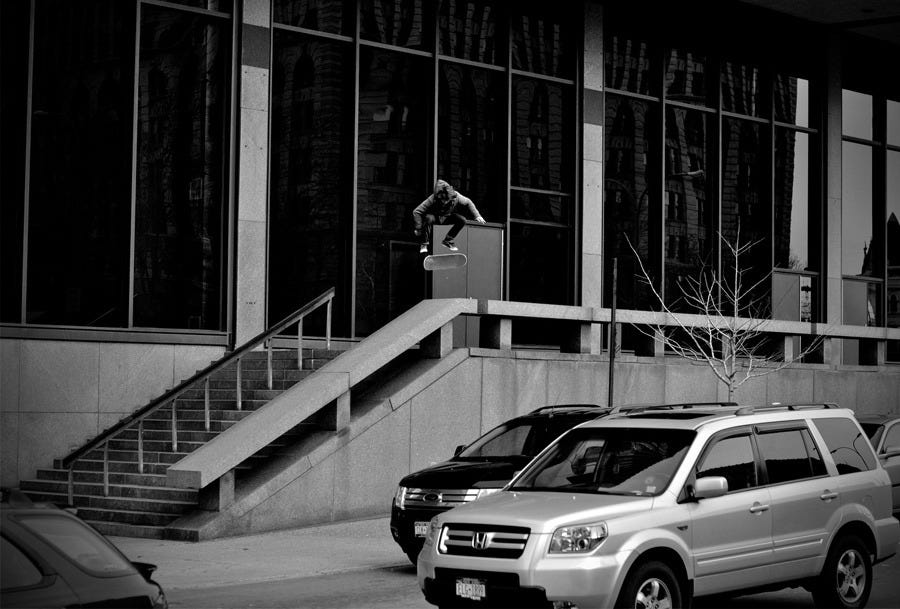
Facing grief
On December 5th, 2013, four months after our meeting at Sloan-Kettering, my brave little brother died. A dozen years later, I continue to try to make sense of his passing, and his absence.
I do not do this alone; many, many people who knew Dave continue to reach out to me on his birthday, or his death day, to tell me: I remember too. I’m telling his story, too.
When our friends first found out Dave’s last tumor would likely take his life, so many rallied around us then as well. So many asked, "How can I help?" or wrote to us, "If there's anything I can do..."
Others simply took the initiative, perhaps sensing that a person caught in the midst of a paradigm-shattering trauma is not the most capable delegator. These people brought common-sense items like hot soup, clean sheets, funny movies and homemade mac 'n' cheese.
Inspiringly, some went in a more creative direction, assigning themselves projects geared around their particular strengths and making offerings of the best things they could muster.
A letterpress artist created a custom artwork for David for everyone to sign with their best wishes as they visited him.
A professional skateboarder asked his company to create a special board with David's name on it, to be hung in his room.
An art therapist came with a stack of her paints and sketchpads, tied neatly with ribbon, in case Dave wanted to paint in his bed.
A number of friends brought CDs with Dave's favorite songs, and we watched with joy as he listened with eyes closed, mouthing the words even after he lost the ability to speak.
A touring musician friend brought her guitar and played the blues, her clear and perfect voice filling the room with a feeling of deep calm and human comfort that was hard to find during those last dark days.
The actions of these amazing friends spoke so much louder than words. They communicated to us just what we needed to hear:
We know we can’t fix everything. We know we can’t cure his illness. We know we can’t make the tears go away. We may not even be able to understand how you feel. But we can step in to help change the sheets and make you soup.
As many people who have fought and lost and grieved can attest, it is impossible to predict which people in your life, when pressed, will choose to face this process of loss and meaning-making with you, or shrink from it. And sadly, some of our closest loved ones did not.
I heard in their silence a sense of terror, of incompetence, of paralysis, of obliviousness or denial. And while I couldn’t know how all the silent ones felt for sure (I was, frankly, too busy to call those who didn’t call us), I did have one opportunity to talk with a close friend who seemed to be avoiding me, after I had helped this friend through many hard times. I told her how much her avoidance had hurt me.
"I've just been afraid of doing or saying the wrong thing," she explained. "I don't want to fail you."
I told her I had sensed that. I understood it. To try something and risk failure or rejection from a friend in need—that is a scary thing.
But that scariness, I felt — and still feel — is not a good enough excuse for staying silent.
"The only way you can fail is by doing nothing," I told her. It is still the most common piece of advice that I give to people who want to be helpful in the wake of someone else’s loss.
That, and bring soup. It is never, ever the wrong thing to do.
Since my brother passed away, I have often found myself in conversations with other grieving people. Ironically, despite the unavoidable fact of death in every human life, the most common refrains I have heard from the grieving are “I don’t know what to do,” “I feel like I’m not doing this right,” and “I feel so alone.” The same feelings that many of us have when we first receive our loved one’s diagnosis in the first place.
We seem to have gained so much as a secular and diverse society, a country of people who can move around, do as they please, rewrite old rules, right old wrongs. But what we have gained in individual freedom we seem to have lost in timeless community traditions, especially those surrounding death, that help ease these feelings of “wrongness,” and allow us to heal. Religious Christians still have wakes, and Jews still sit shivah, but the rest of us, especially those belonging to a younger and less traditional generation, are often left improvising without a script. Of course the results feel sloppy sometimes. But that doesn’t make them less precious, or sincere.
What matters, in the final days of a loved one’s life, is that you gave them the best everyday magic you had, whether it was clean sheets or sheet music.
What matters is not that you were able to exercise superhuman powers and strength to fully comprehend and control the march of human mortality, but how you showed up for it, imperfectly.
What matters is not just how they made the most of their time, but how you made the most of yours.
Further reading:
Here, I want to acknowledge the support I have received over the years as a writer and a sister from the Roswell Park Cancer Center, which commissioned a series of pieces from me several years ago about my brother’s story for their in-house publication, Cancer Talk. Some of these pieces are no longer accessible on their website, so I have adapted, revised and republished some of what I wrote for them here, with the added benefit of preserving my brother’s story a bit longer for posterity.


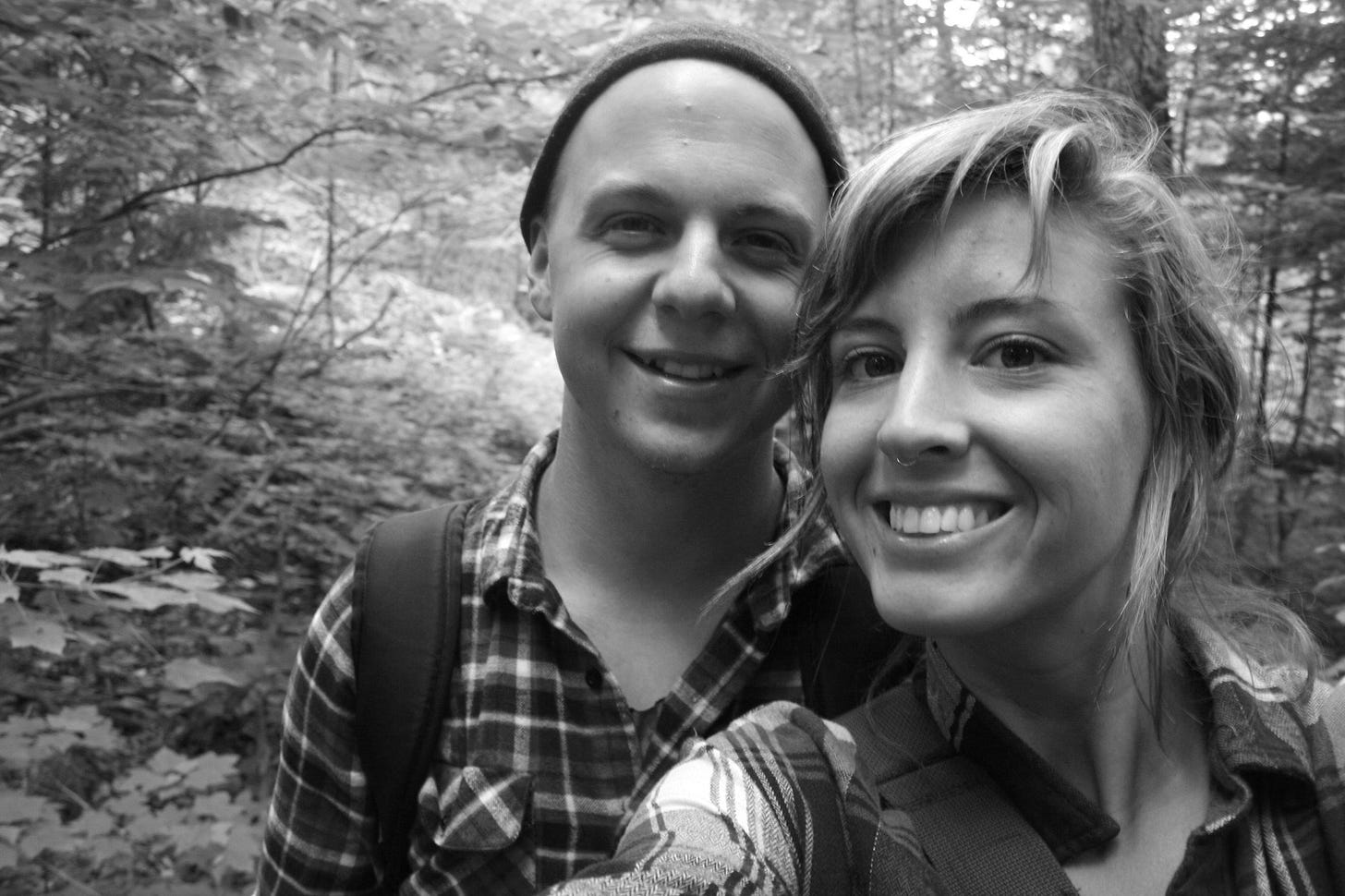





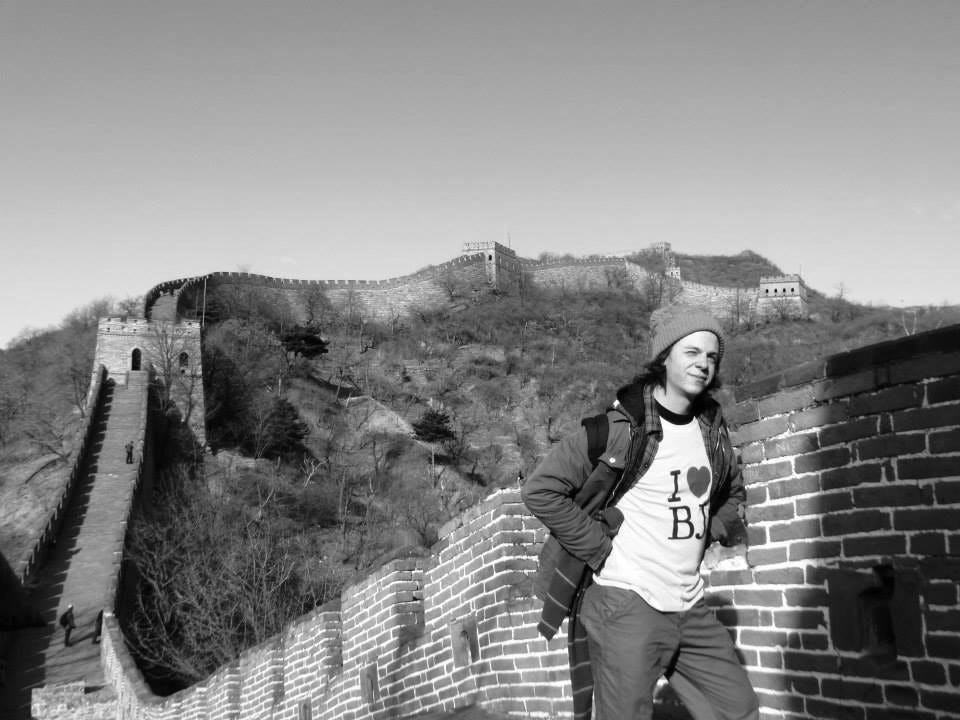
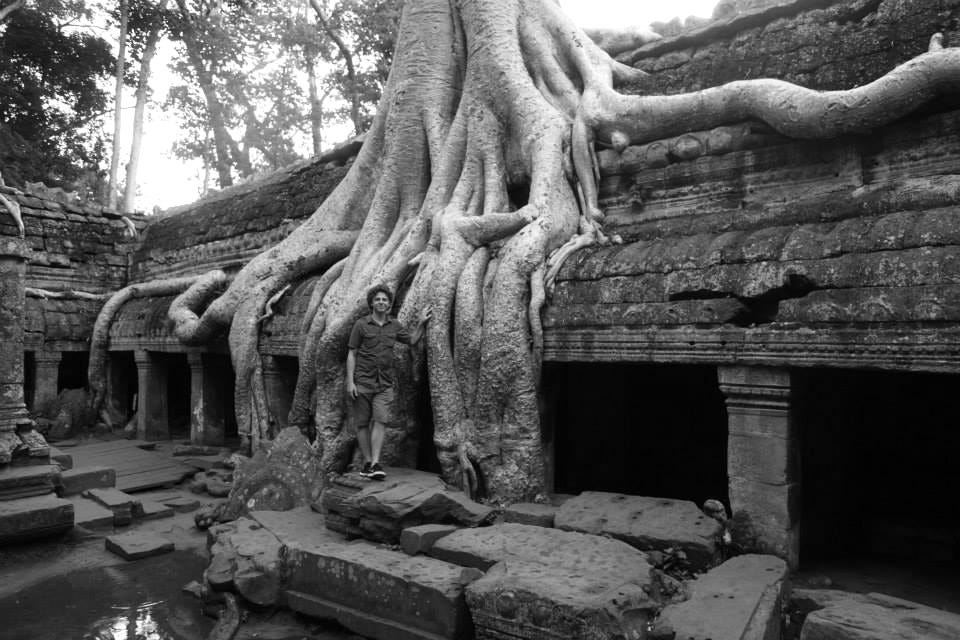


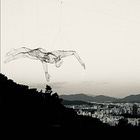
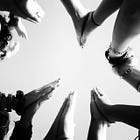

Ryan, this was so beautiful. It made me cry. Thank you for sharing your brother’s story and all these great photos. He did indeed have goofy hair. So did my brother Donald. Little brothers, man. I wish we still had them. Big big hugs to you.
Such a beautiful account of his diagnosis, treatment and love of life. Thank you, Ryan. Means more to me today especially. This is some of your most gorgeous, honest writing I’ve ever read. Also p.s. I also lived in affordable south slope for a hot second in 2008